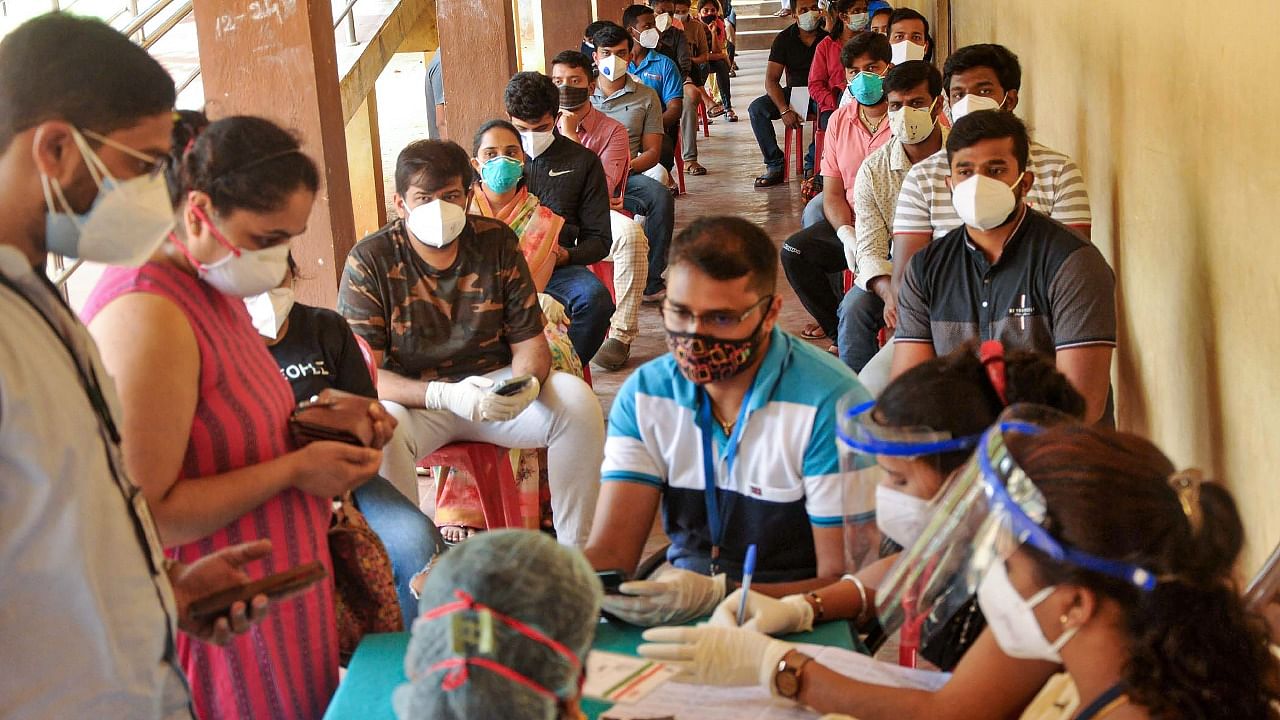
Chief Secretary P Ravi Kumar on Wednesday candidly said it could take months, not just days, for Karnataka to receive the three crore Covid-19 vaccine doses that the government has ordered.
“I can’t say how many days it will take (to receive the doses). It can take months also. We are also waiting,” Kumar told reporters.
Karnataka has placed orders for three crore vaccine doses - two crore for Covishield and one crore for Covaxin. “Out of the three crore, we have received seven lakh doses,” he said.
Owing to the shortage of vaccines, all available doses will be given to those aged above 45 years due for their second dose.
“For the 45+ age category, our vaccine allotment for the first 15 days of the month is 13 lakh Covishield and one lakh Covaxin. We have received seven lakh Covishield and 80,000 Covaxin doses,” Kumar said.
“Whatever is coming now will be given to those who are due for the second dose,” he said, adding that on-site registration for vaccination is no longer available.
Kumar put the onus on the vaccine manufacturers. “We have placed orders. We need the companies to give us a schedule based on which we can plan,” he said.
Covishield, the Oxford-AstraZeneca Covid-19 vaccine, is made locally by the Serum Institute of India whereas Bharat Biotech makes Covaxin.
The Covid-19 vaccination in Karnataka started on January 16. “In four months, we have received one crore doses,” Kumar said. “We will need 6.5 crore doses in all. It depends on the manufacturers, their production capacity and delivery schedule,” he said.
On Tuesday, Karnataka finalised its plan to float a global tender to import two crore vaccine doses. “If more vaccines are approved, then we will have more suppliers,” Kumar said.
When asked about the status of the Russian Sputnik vaccine, Kumar was not entirely sure. “The Centre says it is still in the trial stage. But the news is that Dr Reddy’s Laboratories has been licensed to start production. We have asked the Centre if we can place an order,” he said.
The response to the government’s global tender will depend on the production capacity of the manufacturers the world over. “In some countries, vaccine exports are not allowed. So, let’s see. It is not in our hands.”
